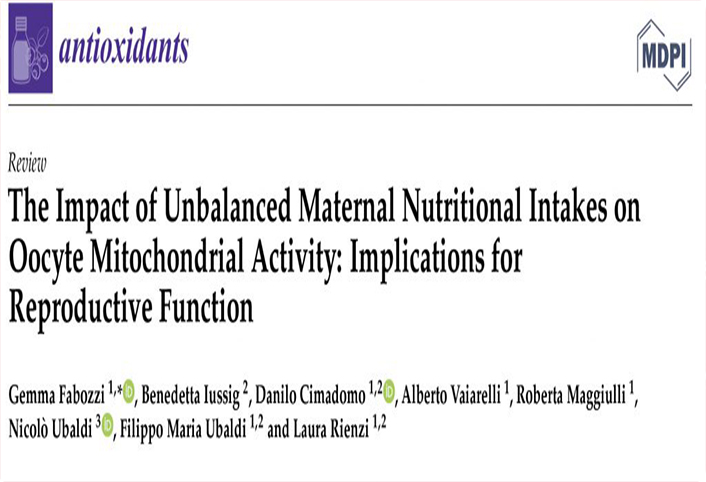
Gemma Fabozzi, Benedetta Iussig, Danilo Cimadomo, Alberto Vaiarelli, Roberta Maggiulli, Nicolò Ubaldi, Filippo Maria Ubaldi and Laura Rienzi
Antioxidants 2021, 10, 91. https://doi.org/ 10.3390/antiox10010091 – Received: 30 November 2020 Accepted: 7 January 2021 Published: 11 January 2021
Abstract
Accumulating evidence on the effect of nutrition on reproduction is emerging from both animal and human studies. A healthy dietary pattern and nutrient supplementation, especially during the peri-conceptional period, might be helpful to achieve a live birth, although the mechanisms implicated are not fully understood. The endocrine system and the ooplasmic organelles apparatus, in particular the mitochondria, are clearly key elements during oogenesis and subsequent embryo development, and their proper functioning is associated with nutrition, even beyond maternal aging. Several studies in animal models have reported various adverse effects on mitochondria caused by unbalanced dietary intakes such as high fat diet, high fat high sugar diet, and low protein diet. The alterations produced might include mitochondrial intracellular distribution, content, structure, biogenesis, and functioning. This review summarizes the key role of mitochondria in female reproduction and the effects of different dietary macronutrient compositions on oocyte mitochondrial activity with their possible short-, medium-, and long-term effects.
Keywords: diet; nutrition; mitochondria; oocytes; reproductive competence; developmental
